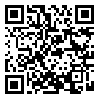Volume 5, Issue 3 (September 2023)
IEEPJ 2023, 5(3): 58-68 |
Back to browse issues page
Download citation:
BibTeX | RIS | EndNote | Medlars | ProCite | Reference Manager | RefWorks
Send citation to:



BibTeX | RIS | EndNote | Medlars | ProCite | Reference Manager | RefWorks
Send citation to:
Khatibzadeh N, Sabet M, Dortaj F, Bagheri N. (2023). Investigation the Effectiveness of Social-Cognitive Education and Coaching Training on Self-Awareness in Female High School Students. IEEPJ. 5(3), 58-68. doi:10.22034/5.3.58
URL: http://ieepj.hormozgan.ac.ir/article-1-430-en.html
URL: http://ieepj.hormozgan.ac.ir/article-1-430-en.html
1- Educational Psychology, Roodehen Branch, Islamic Azad University, Roudehen, Iran
2- Department of Psychology, Roodehen Branch, Islamic Azad University, Roudehen, Iran ,mehrdadsabet@riau.ac.ir
3- Professor, Department of Educational Psychology, Faculty of Psychology and Educational Sciences, Allameh Tabataba’i University, Tehran, Iran
4- Department of Psychology, Roodehen Branch, Islamic Azad University, Roudehen, Iran
2- Department of Psychology, Roodehen Branch, Islamic Azad University, Roudehen, Iran ,
3- Professor, Department of Educational Psychology, Faculty of Psychology and Educational Sciences, Allameh Tabataba’i University, Tehran, Iran
4- Department of Psychology, Roodehen Branch, Islamic Azad University, Roudehen, Iran
Abstract: (2315 Views)
The primary objective of this study was to assess the impact of cognitive-social education and coaching education on self-awareness among female high school students. The research employed a quasi-experimental approach with a pretest-posttest design involving a control group. The study's target population encompassed all female high school students in District 2 of Tehran in 2022. A total of 45 participants were included in the study (with 15 individuals in each group, comprising 15 in Experimental Group 1, 15 in Experimental Group 2, and 15 in the Control Group). The research instrument employed in this study consisted of the Copper Self-Awareness Questionnaire. In the experimental groups, both the Cognitive-Social Education program and the Coaching Training program were administered, while the control group did not receive any intervention. The findings revealed that both cognitive-social education and coaching training had a significant impact on self-awareness scores. Furthermore, the results indicated that cognitive-social education was more effective in enhancing students' self-awareness compared to coaching education. Consequently, cognitive-social education proved to be a more effective approach for enhancing students' self-awareness. Overall, the results of this study offer valuable insights for psychologists and school counselors, providing effective strategies for boosting self-awareness among high school students.
Type of Study: Original |
Subject:
Educational Psychology
Received: 2021/11/25 | Accepted: 2022/03/28 | Published: 2023/09/1
Received: 2021/11/25 | Accepted: 2022/03/28 | Published: 2023/09/1
References
1. Bazargan, Z. (2018). What is coaching and what is not coaching. Elementary Education Roshd, 22(2), 14-17.
2. Blakemore, T., & Agllias, K. (2019). Student reflections on vulnerability and self-awareness in a social work skills course. Australian Social Work, 72(1), 21-33. [DOI:10.1080/0312407X.2018.1516793]
3. Bromandian, N., Mohammadi, N., & Rahimi Taganki, C. (2019). Comparison of the effectiveness of group therapy based on interactive and psychographic methods on the emotional self-awareness of adolescent girls with psychological distress. Journal of Psychological Achievement,, 1(27), 1-22.
4. Cooper, R. K. (1997). Applying emotional intelligence in the workplace. Training & development, 51(12), 31-39.
5. Damon, W., Menon, J., & Bronk, K. C. (2019). The development of purpose during adolescence. In Beyond the Self (pp. 119-128). Routledge. [DOI:10.4324/9780203764688-2]
6. Graham, F., Rodger, S., & Ziviani, J. (2009). Coaching parents to enable children's participation: An approach for working with parents and their children. Australian Occupational Therapy Journal, 56(1), 16-23. [DOI:10.1111/j.1440-1630.2008.00736.x]
7. Hayden, J. (2022). Introduction to health behavior theory. Jones & Bartlett Learning.
8. Kafi Nia, F., & Farhadi, h. (2020). The effectiveness of group cognitive - behavioral therapy on emotional self - awareness and problem - solving skill of students with internet addiction [Research]. Journal of Psychological Science, 19(85), 111-120. http://psychologicalscience.ir/article-1-344-fa.html
9. Kessler, D., & Graham, F. (2015). The use of coaching in occupational therapy: An integrative review. Australian Occupational Therapy Journal, 62(3), 160-176. [DOI:10.1111/1440-1630.12175]
10. Kordnoghabi, P. D., R., Jahan, F., & Bakhtiari, I. (2014). The Effectiveness of Lecture Methods of Instruction and Group Discussion in Learning Self-Awareness Skill among Students [Research]. Quarterly Journal Of Family and Research, 10(4), 101-120. http://qjfr.ir/article-1-99-fa.html
11. Morowatisharifabad, M., Miri, M., Sharifzadeh, G., Dastgerdi, R., Vahdaninia, V., Baghernezhad, F., & Vahdaninia, Z. (2019). The effect of training based on social cognitive theory on the life skills of adolescent girls [Descriptive]. Payesh (Health Monitor) Journal, 18(5), 485-495. http://payeshjournal.ir/article-1-1188-fa.html
12. Najafi, M., & Bigdeli, I. (2012). The Role of Life Skills in the Prediction of Students' Mental Health. Counseling Culture and Psycotherapy, 3(11), 101-116. [DOI:10.22054/qccpc.2012.6081]
13. Perez, L. M. (2011). Teaching Emotional Self-Awareness through Inquiry-Based Education. Early Childhood Research & Practice, 13(2), n2.
14. Sawyer, S. M., Afifi, R. A., Bearinger, L. H., Blakemore, S.-J., Dick, B., Ezeh, A. C., & Patton, G. C. (2012). Adolescence: a foundation for future health. The lancet, 379(9826), 1630-1640. [DOI:10.1016/S0140-6736(12)60072-5]
15. Sharma, M. (2021). Theoretical foundations of health education and health promotion. Jones & Bartlett Learning.
16. Sotoodeh, M., Talebi, R., & Ramin, H. (2018). Comparison of functions of observational learning in male and female Taekwondo Elite and Non-elite athletes. Motor Behavior, 14(1), 22-31.
17. Sutton, A. (2016). Measuring the effects of self-awareness: Construction of the self-awareness outcomes questionnaire. Europe's journal of psychology, 12(4), 645. [DOI:10.5964/ejop.v12i4.1178]
18. Vernon, A., & Doyle, K. A. (2017). Cognitive behavior therapies: a guidebook for practitioners. John Wiley & Sons. [DOI:10.1002/9781119375395]
19. Ziaei, T., Gorzin, M., Aval, M. R., & Behnampour, N. (2018). Effectiveness of Self-awareness based Individual counseling on self-awareness of women in reproductive age. Middle East Journal of Family Medicine, 16(1). [DOI:10.5742/MEWFM.2018.93194]
Send email to the article author
| Rights and permissions | |
 |
This work is licensed under a Creative Commons Attribution-NonCommercial 4.0 International License. |








